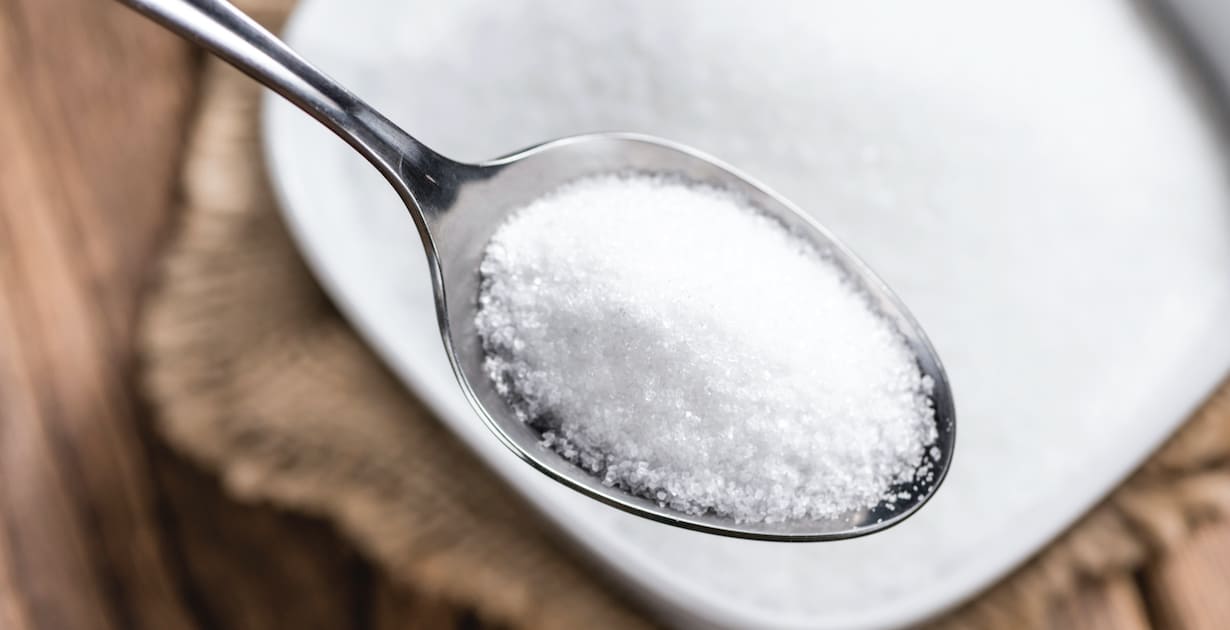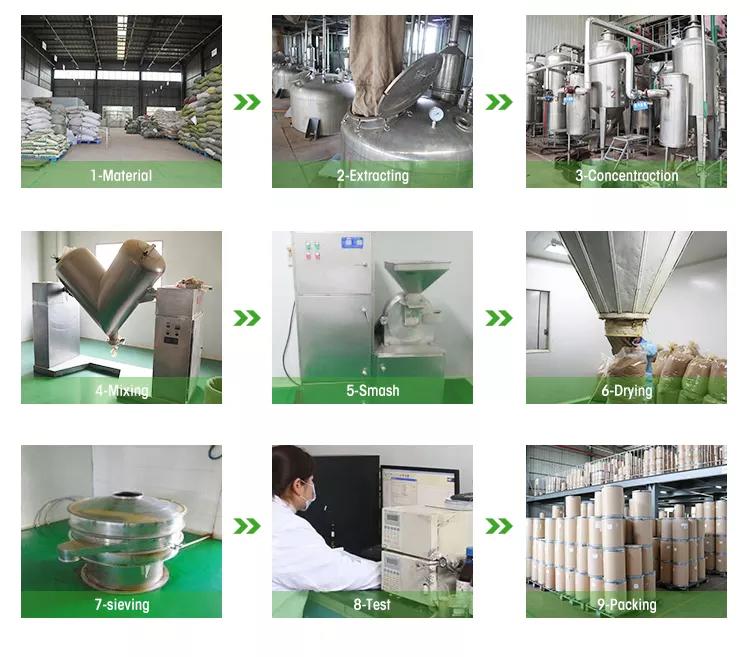Product Categories
- Herbals (5)
- Cosmetics Ingredients (3)
- Plantbased Ingredients (56)
- Botanical Extracts (33)
- Fruit and Vegetable Powder (8)
- Food additive (18)
- Dietary Supplements (10)
Product Name: Allulose Sweetener
Appearance: White crystalline powder
Specifications: 99%
Test Method: HPLC
Sample: available
MOQ: 1kg
Certificates: GMO free, NOP EU, ISO,Kosher, Halal certificate
Email: [email protected]
Allulose Sweetener is a low-calorie sugar found in wheat, figs or raisins, which has 95% fewer calories than regular sucrose and is not metabolized. Allulose was approved by the US FDA’s GRAS in 2014, but has not been further developed in the US market due to its “added sugar” status. Allulose is a monosaccharide that needs to be included in carbohydrates and total sugars, and was not available as a low-calorie sweetener at the time. In 2019, the FDA announced that the low-calorie sweetener allulose would be excluded from the labels of “added sugar” and “total sugar”, and its calorie value was set at 0.4kcal/g. Subsequently, ingredient companies began to increase allulose. Sugar production, the U.S. food and beverage market has also begun to use allulose, and the domestic demand for erythritol has surged, and allulose has ushered in rapid development as an excellent substitute for erythritol.

| Standard | |||
| Test Item | Syrup | Powder | Crystal |
| Appearance | Colorless Light Yellow Liquid | White or light yellow Powder | White Crystalline powder |
| Taste | Sweet | Sweet | Sweet |
| D-Allulose (dry basis), % | ≥95 | ≥95 | ≥98.5 |
| Solids Substance, % | ≥70 | – | – |
| Moisture, % | – | ≤4.0 | ≤1.0 |
| PH | 3.0-7.0 | 3.0-7.0 | 3.0-7.0 |
| Ash, % | ≤0.5 | ≤0.5 | ≤0.1 |
| As(Arsenic), mg/kg | ≤0.5 | ≤0.5 | ≤0.5 |
| Pb(lead), mg/kg | ≤0.5 | ≤0.5 | ≤0.5 |
| Total Plate Count, cfu/g | ≤1000 | ≤1000 | ≤1000 |
| Coliforms, mpn/g | ≤0.3 | ≤0.3 | ≤0.3 |
| Yeast and Mould, cfu/g | ≤25 | ≤25 | ≤25 |
| Salmonella, S.aureus /25g | Negative | Negative | Negative |
With the approval of the US FDA, allulose powder has been approved by regulations in 13 countries including Japan, South Korea, Canada, Australia and New Zealand; the United Kingdom, Germany, France, etc. have also developed and researched allulose. For allulose powder, the product listing reserve has been prepared after the regulatory approval. The number of patents for allulose has increased significantly since 2014 and is rapidly entering the market. If the subsequent approval of the National Health and Health Commission is approved, then allulose is expected to increase in volume in the worldwide market. At present, the market evaluates allulose as the next stevia, so the research on allulose and the production of allulose are constantly increasing.
From the perspective of enterprises, there are still not many enterprises engaged in the extraction and production of D-allulose globally, mainly in Japan, the United States, Europe and parts of China. At present, the main obstacle to the promotion of allulose is its high cost, but as the technology becomes more and more mature, the cost reduction in the future is also inevitable. Industry analysts believe that 10 years ago, stevia obtained the FDA-approved GRAS certification, and has been active in the field of sugar replacement since then. As researchers learn more about the ingredient and work to better develop it for food and beverage applications, stevia has become a very widely used sweetener, second only to sucralose and cyclamate globally. Allulose have a good chance of replicating this process in the next 10 years.

Compared with other zero-calorie natural sweeteners, the biggest advantage of allulose is that it has similar properties and functions to sucrose, is safe enough, and resembles “sugar” enough, making it capable of being used in areas where other sweeteners are difficult to perform. Excellent sugar replacement effect is also obtained in applications such as baked goods. Its main advantages are as follows:
1. Low calorie
The sweetness of allulose is about 70% of that of sucrose, but the calories are much lower than that of sucrose, only one-tenth of that of sucrose. A small 2015 study suggests allulose may be beneficial for type 2 diabetes and obesity, and researchers report that allulose may help control blood sugar levels and improve insulin resistance, both in obesity and in people with diabetes It is a very ideal substitute for sucrose.
2. Good taste
In terms of taste, the sweetness of allulose is soft and delicate, and the pure sweetness is very similar to that of high-purity sucrose. The initial stimulation to the taste buds is slightly faster than that of sucrose, and there is no bad taste during and after consumption. Its sweetness does not change with temperature, and it can express pure sweetness at various temperatures.
3. High security
Allulose is regarded by European and American scholars as the best substitute for erythritol, because the sweetness of the two is similar, and it is safer than sugar alcohol. People have a certain tolerance to the intake of various sugar alcohols, otherwise there will be different degrees of laxative effects, but allulose will not have such a situation, and it will have no effect on metabolism and blood sugar levels.
In addition, psicose does not use chemical synthesis. The general preparation method is that fructose extracted from corn or sugar beet is prepared by enzymatic epimerization method. The generated product is relatively simple and belongs to natural products.
4. Improving product quality
Allulose and egg albumin can not only form a better cross-linked structure through Maillard reaction, improve food texture, but also generate substances with high antioxidant effect, which can reduce oxidative loss in food processing and storage. Partial replacement of sucrose with allulose in cakes can improve cake quality by producing a large amount of antioxidants through the Maillard reaction, thus making it an excellent alternative to sucrose in baking applications.
5. High stability
The structure and characteristics of psicose are extremely stable, and it has strong chemical inertness. It can maintain its original state under acidic or alkaline conditions, and its stability is higher than that of sucrose. It is convenient to apply to various nutrient-rich, raw materials in foods with complex origins.
Allulose is a general-purpose ingredient that meets both sweetness and functional requirements, reducing sugar while achieving sugar functions such as browning, providing volume and bulk, etc.
* Calorie, Sugar & Gluten-Free,low glycemic
* USDA & EU Organic, ISO22000, Kosher Certified, Non-GMO
* Sugar Substitute
* Tooth Friendly
* Taste and Feels Just Like Sugar
Just feel free to write us at [email protected] if you are interested in our allulose sweetener powder.

